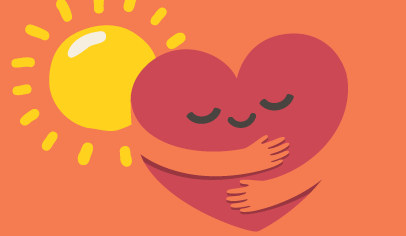Did you know that stress is the number one impediment to student success? According to the National College Health Assessment, which is done every three years on a college campus, one third of students said that stress was so significant that they were not able to be successful academically.
College should be one of the most enjoyable times of your life, but it can also be extremely stressful. With difficult classes, campus activities and jobs, it’s no wonder that at least 8 out of 10 college students experience stress!
Luckily, there are ways to calm your nerves and to stay healthy during times of high stress and to combat those everyday stressors. It’s all about finding your balance. Fernando Diaz, Health Educator from Cal Poly Pomona’s Health and Wellness Center shared some great tips and techniques to get you through those stressful times. Check out his tips below to understand why we get stressed and how we can control it.
What can students do when they have work overload?
Fernando Diaz: Students have a tendency to over-commit to things, especially if they have work, certain commitments on or off campus, on top of academics too. So I think setting a realistic goal and not saying yes to everything is important. Prioritizing is definitely the key.
How can students prioritize?
Diaz: Write things down, whether it’s a planner, your phone or anything that allows you to keep a schedule-that’s really helpful. If you’re winging it, you’re not going to make it; things are going to pile up. You might forget where you have to be—so time management is definitely essential. The second piece is the wellness approach, because under stress, you don’t function appropriately. If you have lack of sleep, skip breakfast and don’t exercise, your body is functioning in a different manner. But if you’re getting good sleep, having breakfast, eating throughout the day along with snacking, exercising as well, your health will be better, and stress levels will be lower so you’ll be able to function better.
Why do students get sick when they are under stress?
Diaz: Students tend to get sick when they are neglecting their health. They tap into their sleep time to get things done. If you’re not supplying your body with the things it needs, (eating adequately, getting sleep, exercising), your immune system will be suppressed and you will be more vulnerable to disease. That’s why students get sick during midterms and finals week. It’s not because those bacteria and viruses are only around during those times—they are always around. But if your immune system is more vulnerable, then you’re more likely to get sick.
Why do people focus less on their mental health and more on their physical health?
Diaz: There is some stigma associated with seeking help when it comes to mental health. A lot of it is just the philosophy of sticking it out, fighting through it, showing resistance. Resilience is key, but there’s a lot of times we need assistance but we don’t want to be perceived as weak. The reality is that we’re all stressed out on different levels and we all have different tolerance for stress. It’s up to us to know how much stress we can handle. When it feels like it’s getting overwhelming, then that is when we should go to seek help. It’s more individualized. You have to be able to measure how much you can handle. You shouldn’t be ashamed about it.
Is it a good idea to talk to your friends when you are stressed out?
Diaz: It’s important to be open with your social group, to be able to disclose certain things. But it’s also important for friends and family to know how to get the adequate help that their loved one may need.
What are resources for students who feel stressed?
Diaz: There are a lot of resources on campus. We have physicians on campus to screen for stress levels, depression and suicide. We have a psychiatrist for more severe cases and counselors down at counseling services. We also have a partnership with Tri-City Mental Health Services.
What is Active Minds?
Diaz: On campus we have a student club called Active Minds. Their main focus is to get rid of the stigma that is associated with mental health and to promote mental health. If students are distressed or overwhelmed, and they need some assistance with their mental health, their goal is to find the student the appropriate help and to make them feel comfortable.
Why is sleep so important?
Diaz: REM (rapid eye movement) sleep is when you recover. Focus on the quality of sleep, at least 7 to 9 hours. Sometimes students are not able to go to sleep because they are stressed or overwhelmed. Caffeine and alcohol can also contribute to not being able to sleep. One tip is to write down everything that you have to do the next day. Your mind will want to remind you about what you have to do the next day, so put in on paper.
What are other stress reduction approaches?
Diaz:
- Relaxation breathing techniques.
Take a deep breath and hold it in, release slowly. This lowers blood pressure and the heart rate. It allows you to take your mind off anything that may make you stressed out and kind of regain focus.
- Guided Imagery
We also have a software called emWave and it is a stress reduction software that focuses on bio feedback. It monitors their heart rate and rhythm. So when someone is really stressed out, their heart rate is really fast and their blood pressure is high.
- Exercise
Yoga is good (we have it in the BRIC). It has so many benefits for both mental and physical. Exercise in general is great. Whether it’s some kind of sport, strength training or doing some kind of cardio. It’s an outlet by physically letting it out.
- Surround yourself with loved ones
Hang out with friends and loved ones You can talk to them about how you’re feeling. It can take your mind off of certain things, and spending time with people that you care about.
- Get connected
Get involved on campus. It could be through a club, organization or even work.
For more information on student wellness, visit the website at: http://www.csupomona.edu/~healthcounseling/




